Here’s the scenario: Mrs. X hires Decorator Y to design and execute a plan for a room or rooms in her home. Mrs. X admits that interior decorating is not her thing and she’s been unable to do so on her own. She loves Decorator Y’s ideas and they schedule a shopping day(s) where they use the plan to pick out furnishings and decor for Mrs. X’s space. This is an almost magical day for her – not only has Decorator Y prepared and planned out where she needs to go to find exactly what is needed WITHIN THE BUDGET, but she also scheduled appointments with the specific stores’ salespeople with whom she’s built a good relationship over the years (this is key, and often undervalued). She lets them know ahead of time exactly what she is looking for Mrs. X, and the salespeople have a good idea on how to direct them both when they arrive, saving time and money for Mrs. X.
Mrs. X and Decorator Y spend the day together, carefully and painstakingly choosing each piece. It’s not as easy as it may seem – every decision is dependent on the prior decision – working from most important (and costly) to least important. If one item in that chain is altered, every decision following that altered item has to be reconsidered. In the end, they have a *perfect* plan that meets the desires and the budget of Mrs. X, and everyone is excited to see it come together. The salesperson prepares price lists, sends photos and answers questions after the visit – spending hours helping Decorator Y and her client.
But then. Decorator Y gets a message from Mrs. X. She informs her that, with the information they attained from the retailers/salespeople, Mrs. X (and Mr. X) have searched online and found the items decided on with Decorator Y and ordered them. Well, some of the items weren’t exactly the same, but similar enough to what they chose. And they got the items at a lower price. Decorator Y is dismayed. Why should she care? What difference does it make?
There are three issues here:
1) The damage to the local vendor.
News alert: it’s expensive to operate a retail store. The online company isn’t paying for a storefront and doesn’t have the employees or overhead costs of owning a building. Or the rent, utilities, management, employees, inventory, and a beautifully staged store for customers to peruse. A place where you can sit on the sofa, touch the fabrics, better understand the scale of a piece. Of course they mark up product – they have to make a living and pay their overhead and employees. Sure, you saved a few bucks by not paying the mark-up the store would have charged – after you used the store’s costly resources to find the items. You used their store as a way to see the merchandise outside of photos, which you never could have done online. In fact, you would have never purchased all that online if you hadn’t been able to use their storefront and gather all that info from the store experience and the help from the salespeople. So, the $500 you saved? You actually stole it in labor hours and rent from the local retailer.
2) The damage to designer/decorator’s relationship with that vendor.
As a design professional, the relationships you build up with quality vendors over time are valuable. Retail stores provide extra service for the clients I bring in – extra time and attention, creating spreadsheets with pricing to make it easy for my client and myself. They don’t do that for people walking in off the street – it’s part of the relationship they have with me as a designer. These people often spend 3-5 hours working with us, helping us find exactly what we need within our budget.
Bringing in clients that make these kind of choices damages the trust and relationship I have with the vendor.
Some vendors suck, and I don’t work with them! I work with quality vendors with quality personnel. I doubt they would want to continue to bend over backwards for me and my clients if they realized I was bringing in clients who use their storefronts to facilitate purchases online through other companies. Plus, salespeople are paid on commission – the hours they spent working for us could have been spent with other customers who actually purchase product in their store. In essence, we used their expertise and time for free. Don’t they deserve to be paid?
3) The damage to the design outcome.
It’s highly unlikely you are going to be able to find every item online exactly like they found in the stores. Low quality, underscaled knock-offs are all over the internet, and most of it is being made in sweatshops in China. If you are sharp enough to figure out quality, scale, value from looking at photos and researching manufacturers, more power to you. But let me tell you – I can’t even do that. I can’t possibly make anywhere near as good of choices if I had tried to do this completely online, with the actual products sight unseen. Sure, I have enough experience with mainstream online retailers like Ballard Design, Pottery Barn, West Elm, etc. to know what value to expect from their products, but you aren’t going to find deep discounts there. You have to dig deeper into the web to get those closer-to-wholesale prices, but you can’t be sure of quality, service, or good return policies. An online source can’t offer the hands-on experience that enables you to make a wise and informed decision about what you are buying. You get screwed on one piece and you have to eat the cost of that item, virtually eliminating that small percentage of money you thought you were saving overall. And are you considering shipping costs for large items? Most of the supposed discount pricing is irrelevant if you have to pay for shipping. And the final result? Not the quality, professional results you were hoping for when you hired a design professional.

I have experienced this scenario a couple of times over the last year, and I’ve had to “fire” a few clients over it. I understand that people want to save money, and I try to help them do that (really, I do)! I know they don’t really think they are hurting anyone, but they are. I decided it’s not in anyone’s best interests to continue working with clients like that. It frustrates me to no end, and it makes me feel like I am enabling folks to continue doing this unethical thing if I continue to work with them.
Look, I’m not saying you shouldn’t shop online. If you want to shop solely online and pay less, you should totally go for it. That’s fine, of course! What ISN’T fine is when you use retail stores to do the real shopping, then buy the merchandise elsewhere online. And you should probably forego hiring a design professional if you intend on going this route – just be your own decorator, if you prefer.
Just because you can have your cake and eat it, too, doesn’t mean you should.
 What’s the big deal? If you aren’t an interior decorator or stager, you may not have the perspective I have on this. And that is why I am writing this post. I want you to understand exactly what the big deal is.
What’s the big deal? If you aren’t an interior decorator or stager, you may not have the perspective I have on this. And that is why I am writing this post. I want you to understand exactly what the big deal is.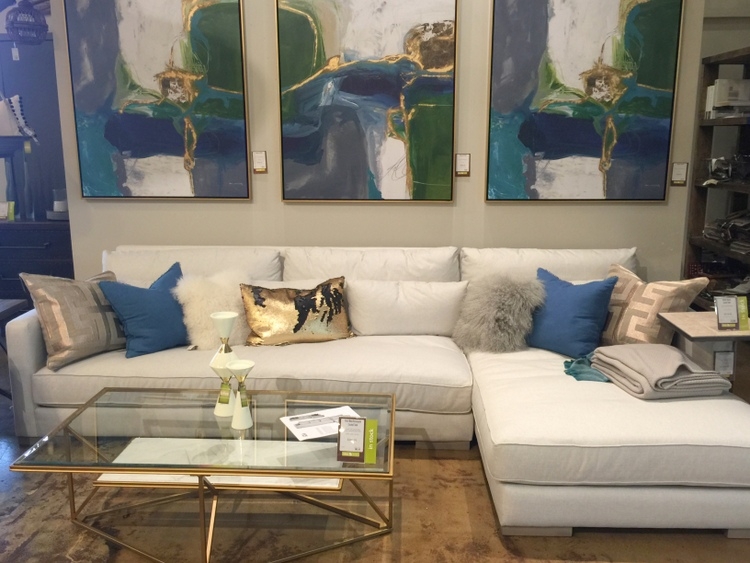


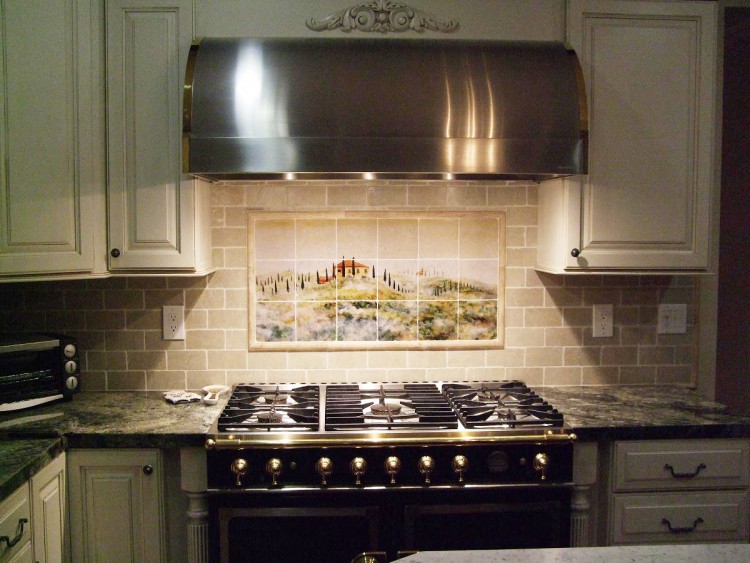
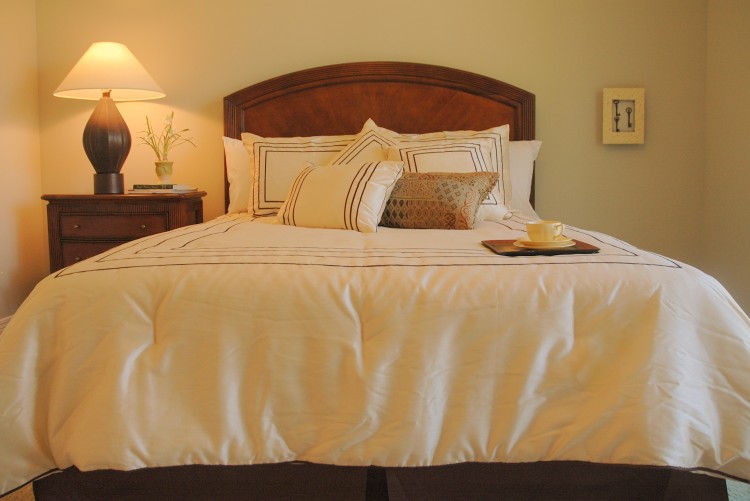
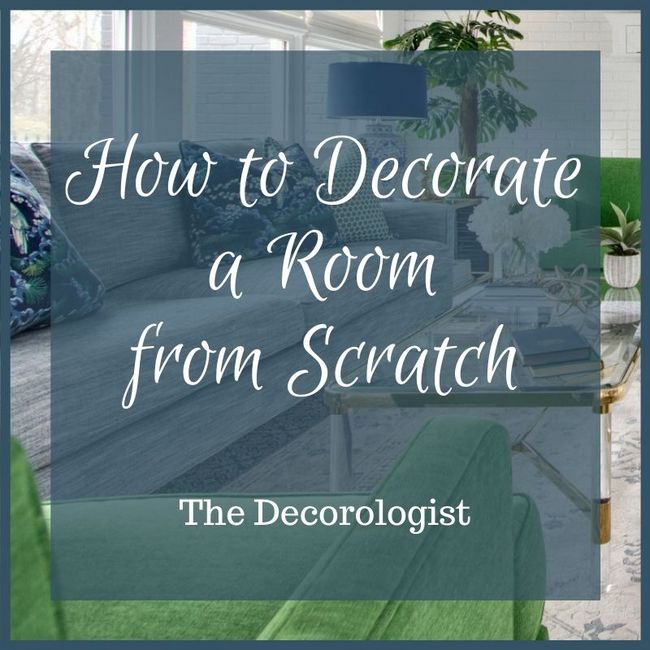
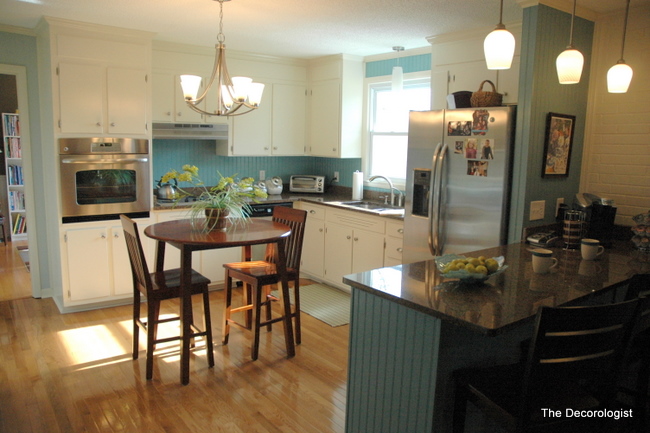




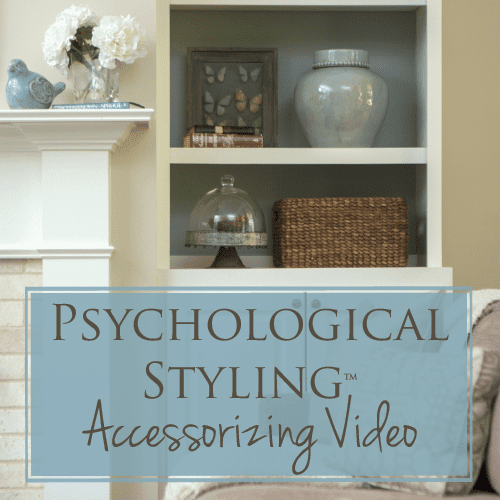
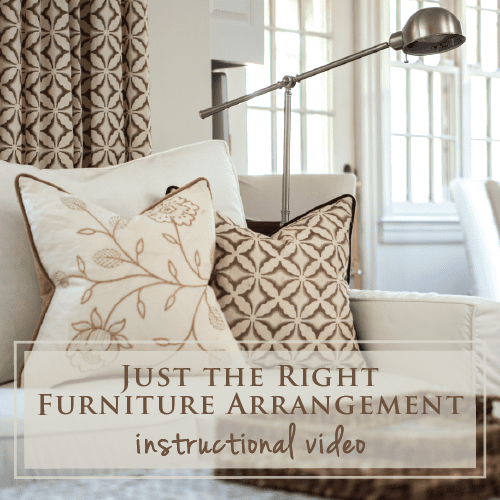

IN ALL CAPS BECAUSE I’M SHOUTING YES, YES, YES!!!!! Such truth in this and only you could pen it so eloquently- well done my friend!
Thank you, Elizabeth!!! This wasn’t an easy one to write. It may make some people mad, I suppose. I believe that people don’t truly realize that they are doing something unethical and I hope this helps them see it from the vendors’ side of the fence!
Wow. What an appropriate and timely articles. When I sold rugs and fabric years ago on 3rd Avenue South at The Salvage Store I would help designers like yourself help their clients. This was way before you could buy stuff online. Those designers did take care of us, and I thank them to this day. Thank you Kristie for addressing this.
I remember that store, Daniel! I went there often, well before I was doing this for a living 🙂
All I can say is HALLELUJAH! Excellent synopsis of the damage done to traditional retailers. As an independent designer I value every source, and just am going through this exact scenario. Some people are so money driven they have no sense of true value. Thank you for bringing this ugly behavior out in the open.
Thank you, Amy. I hope it helps some people to see the light 😉
Well said! And provides a valuable framework (and the perfect language!) for us to have the conversation ahead of time with clients to avoid this kind of situation, or derail it if it feels like it’s headed there!
Paula,
I have found it tricky to have this conversation with new clients. Maybe I’ll just send them a link to my post now!!! 😉
Kristie, wow, well said. I have fortunately had the latitude in my last couple of jobs to choose not to work with clients who just “didn’t get it”…whatever the “it” was in each case. And now with having my own business, it’s especially important to give myself the permission to trust the gut feel and walk away from (a/k/a “fire”) a client who is disrespectful/unethical in the ways you described (among others). Thank you for this very-well-written read and timely reminder!
Thanks, Molly. It’s an important thing to remember, but I tend to want to take every job!!! It wasn’t until I simply couldn’t take every job that I began to learn to be more discerning about the ones I chose to take. Even then, you never know . . .
You’re right on, Kristie!! Thank you for articulating this scenario so clearly. I had it happen once and have managed to steer clear of it a few times, too. I explain to the client that I don’t feel right taking up salespeople’s time or space in their store if the ultimate goal is to go on-line to save a few buck. NO thanks!
Thanks, Gina! Yes, it’s definitely a red flag for me now. No more . . .
Great post, and I hope people remember this goes for book stores and electronics stores too (so tempting to browse the aisles of the book store, have a cup of coffee and read their magazines, then go order your books on amazon — but that is the road to no more book stores!)
Sandy,
So glad you mentioned that – you are correct! If the general public continues that kind of behavior, local furniture stores will close down like many of the local book stores have done. I still mourn the closing of Davis-Kidd Booksellers here in Nashville. I have fond memories of hanging out there in grad school and my single years in the evenings and weekends, finding wonderful new things to read . . .
Excellent points, Kristie! With reference to on-line shopping being (possibly) less expensive, I had an interesting experience with a nicer “chain” store that sold furniture, rugs, accessories, etc.. I found a rug I liked in their retail store and had a question about stock and delivery. They didn’t stock the item and the salesperson told me look on their on-line store! I did, and the rug was less than the marked price in the store! In the end, I found a rug somewhere else, but this advice from within the store puzzled me. Ever heard of this?
No, I haven’t, Joanne – but maybe there are online sales that don’t hit the retail stores (in reference to larger “chains”). I’m mainly referring to the smaller retailers who are local or maybe have 3-4 storefronts in different cities.
I’m sorry you’ve had to experience this but it makes me think that’s it’s always been happening, from the dawn of the industrial revolution to the big box stores and now with internet shopping.
Sad, but true.
What a rotten thing for someone to do. How terribly self-centered a person must be to use others like that and have no regard for the store staff or even the decorator they hired.
Then there’s the damage to local businesses who are facing all kinds of problems from online competition. Sure, you might get a nice free shipping deal if you spend enough, but that lovely little store downtown with the friendly and knowledgeable staff may have to close its doors because everyone is going online instead of buying from them. It’s sad and unfair. I think I’ll go find some pictures of baby animals or something to cheer me up.
Molly,
It’s super common, I’m sure. I just don’t think most folks think it through. They’re just trying to save money, and I get that. What surprises me is that they decide they have enough money to hire a designer, and then they pull that?
Wow, I just had something happen after a staging that made me want to send that ” You’re fired !” letter too! We staged a sweet little “memory point” with a love seat, a handsome marble topped little table, some little appertif glasses and a tiny bottle of Frangelica. The set was facing a gorgeous view and it was a wall that was really tough to figure. The homeowner came over and took the little table to her new home, put the whole little vinyette on the nearest kitchen counter & when her husband said, ” Don’t you think you should ask Sue( her Realtor)first,?” She replied” This is MY house!”.
I wonder what she would say if I went & stripped all of MY props I had to buy for this staging because she HAD to take all of her decorative items with her….?
PS: she still hasn’t paid us for the staging!!!
(Guess I’m the sucker here)
WHAT??? She’s using your props in a different home than you staged??? What on earth are people thinking?
Actually, it was her little table. But in taking it out she decimated the display. I was just wondering what SHE would think if I took MY. Props( like the whole master bed set of linens, for example) and left the bare mattress in ” her” house. I was just flabbergasted at the stupidity of the action. She continues to shoot herself in the foot, and stall off the sale. ?
PS: I am now going to put a line in my new contract that will say something about not removing ANY of the staged items until the closing.
Yes, that’s an important thing to specify in your contract. Sometimes you just don’t know what people are going to do (until they do it)! Sorry, Paula!!!
Including the items owned by the homeowner themselves…..
I’m not a designer but I was just thinking that perhaps this “help” should be paid for by the clients and the charge applied to their purchase once they make that decision. This will avoid unethical practices that they’re unwittingly making.
Saida,
That would be tricky, as these are retailers open to the general public. They don’t charge people to come in and look around, or to work with their design/sales staff. I know (and they know) that there will always be people who do this kind of thing, but as a design professional I want to avoid setting them up to do a whole lotta extra work for one of my clients if I know they are apt to do this. Thanks for sharing your thoughts and commenting!!!
Great post Kristie! Timely for me as well as I have a couple of clients who I’ll be sending this link too.
Thank you, Sheri – I hope it helps!!!
This was a very important message for all of us, Kristie- One of my best friend is a designer and I learned a lot of what not to do from her- she spent a lot of time helping a very wealthy “Doctors wife” pick out new furnishings and on shopping day, the wife cancelled and then 6 months later, when she stopped by, all of the new items were there- she didn’t want to pay the designer to go shopping with her , as they had planned for a whole day and my friend had set aside the whole day, when she could have seen other clients- so not cool-also, we a consumers are shooting ourselves in the foot with all of our online shopping- I make it a point to buy a book or several magazines at Barnes and Nobles every month-look at what happened to Borders? I shudder to think what life would be like without one friggin bookstore, where you can drink coffee and thumb through magazines, meet authors-meet friends- I have pulled back on my Amazon shopping and am hitting my local retailers now- even if the same items cost more- I only order online if I can’t find it local-it’s just plain morally wrong to go into a furniture store, find exactly what you want and run home and order it online.We are all cheating ourselves when we will no longer have any stores, but a massive Walmart to shop from in the future.
Kathi,
What a sad day that would be if we no longer had local stores in which to browse, feel things, see them with our own eyes. It also would be very isolating, I would think . . . Thank you for sharing your thoughts with us!!!
Great essay. People who focus solely on “cost” don’t understand “value”. I suppose you could put some sort of language in your contract or statement of work that explains this, but those folks would probably try to wiggle their way out of that as well. Perhaps decorators need to have their own system for rating clients, just like some of the new technologies do (e.g., Uber). That way if a homeowner shops around from designer to designer and tried to pull this multiple times, they would be found out.
Haha, Lisa, I wish! I do have client’s do an initial intake form that acts as a screening to make sure we are a good fit, but you just never know. I like how you point out that there’s a difference in “cost” and “value.”
Thank you for writing this Kristie! It helps all of us, stagers, designers, retailers and most of all – the client when they get the perfect design, not the kinda close but a few dollars less look!
Teresa,
Yep, that’s the new trend: the “kinda close but a few dollars less” look! 😉
We are living in a time when people think about what is legal instead of what is ethical. You did a great job of explaining how it is really a form of stealing to use other people’s time and expertise without compensating them. Just because doing so is not illegal doesn’t make it right.
Kay,
That is very true – just because something isn’t illegal, doesn’t make it ethical. Thanks for pointing that out!
Hi Kristie,
I love this so much! It needs to be said and often! It would be one thing if all they wanted you to do was put together a design scheme for them, but that would not include wasting a store vendor’s time.
In my practice, I rarely took a client shopping because I felt I could do much better going straight to the vendor as much as possible.
But I also stated up front in a casual conversation and in my LOA that it’s understood that the clients are purchasing the products through my business. Of course, I will show them furnishings that meet their budget parameters. That did help.
I am speaking in the past tense, because I am no longer taking clients. But I know that a lot of designers still face this kind of clueless behavior from some of their clients.
And yeah… I fired a few too and if I was very lucky, they fired me first! haha!
Thanks for chiming in, Laurel! I’m guessing you have mainly worked in the high-end sector of design. I have always tried to serve those clients who perhaps have never been able to afford a high-end designer by charging hourly fees (rather than project fees or cost plus), so it hasn’t been in my best interest to purchase things directly for them and deal with returns, deliveries, and other problems that can arise. It typically works well for me to shop with them at local retailers where I have a good relationship, and I also give them recommendations for specific items from online companies when that is needed, too. But, obviously, that gives me less control over the whole thing. What you say is food for thought, thank you!
This is a great post, Kristie! As others have noted, this advice applies to retail well beyond places designers shop. I’m very conscious of shopping locally for locally-branded stores but admit I wasn’t always as diligent for national chains. I recently was in Restoration Hardware looking at some window hardware. They have samples in the store, but you have to order the products. I wasn’t ready to make a final decision that day so thought I would order online later. The salesperson nicely said that if we want to have a local showroom to go look at merchandise, we need to make our purchases in it. You can be sure that I went back to place my order and have taken her comment to heart for shopping national stores.
I have never thought of that in regard to Restoration Hardware, Pottery Barn, or the like, so thanks for letting us know about that!!!
I am neither a blogger, designer, decorator or client. But what a wonderful post! I rarely buy online unless it’s from one of the chains you mention because I have in the past received inferior products to originals from stores. But I hardily support brick and mortar stores and by doing so I keep my community humming and thriving. The same clients that would save a buck at another’s expense will be the first to complain about empty storefronts and declining property values! Shame on you.
Wow! Blame the client! Maybe you should make clear what your fees cover, your expectations and learn how to set limits. You can Fire Me from your blog.
Wow, Sandy. Really? This wasn’t about my fees at all – it’s about helping people realize what they are doing when then use local retailers’ storefronts as a showroom for online companies who don’t offer showrooms. It’s just not fair to the local retailers. And I did set my limit – my limit is when my client is using my vendors without intending on making purchases, with no consideration for the vendor’s costs.
Yes! Support your local business owners! I’m a Realtor. I could write a similar post about “clients” who spend hours and hours in a realtor’s car looking at properties and then have another agent who has done NO up-front work write an offer (and get paid the commission.) It happens all the time. It’s important to educate people so they can make better choices. I don’t believe they think about the ramifications of their actions much of the time.
YES, LISA!!!! That is the WORST, and I’ve seen that a lot, too. That would drive me bonkers, and I’m so sorry that happens to Realtors. All that work, time, money invested, then they don’t even use you to purchase the house. 🙁
I do think it’s unethical for a client to source things independently after you’ve worked with them. I don’t blame you a bit for firing a client for doing this (I am not a designer, just like reading your blog). However, if your vendors’ pricing is that much higher than what is found on the internet, there’s going to be a constant issue with clients wanting to shop around. I worked with one decorator in the past that just charged me by the hour, and I bought the things on my own. Now I’m working through flooring and lighting suppliers who offer significant discounts to the trade, so that it’s not worth it for me to shop around, because I’m getting the best price, even after designer markup and most of the items are not available to the general public.
Hi Susan,
I only take my clients to vendors that offer reasonable pricing – in fact, I avoid taking them to those with inflated pricing. Do you work in the design industry, and is that how you are getting suppliers discounts to the trade? Don’t you find it difficult to choose some of the items without actually seeing them, touching them? I sure do.
Hi, Kristie. I’ve followed you for a long time and love your blog dearly. I appreciate that you say several times that you truly believe most people who do this don’t “get” what they’re doing, and they really don’t understand the ramifications of their decision. So then, why be mad at them? If I unknowingly made a huge faux pas and really cheesed someone off, I would be absolutely devastated! Please educate the client ahead of time (great idea to refer them to your blog post, and then later make sure they are in agreement.) If they balk, you both know it’s not the right fit.
I completely agree that the salespeople need to be compensated for their time, no question. But not everyone knows all the rules, or has had the insight to think it all through. When I went to New York as a teen, I was very grateful to one teacher who made sure we all brought small bills, and knew everyone we were supposed to tip (I’d never even heard of a restroom attendent before.) If not for her educating us, we’d have been unknowingly stiffing people all over the place! Rudeness often is perceived, when only lack of knowledge is to blame.
Fun to see Laurel comment on here; I follow her, too. Thanks for a great post.
Thank you for sharing your insight and thoughts about the post. Did I say I was mad? Really, it’s more frustration and feeling guilty myself for wasting my vendors’ time and effort. The reason I am sharing this in a blog is to educate people who haven’t really thought it through. Let me tell you, it’s a hard sell to start a client relationship with these kinds of difficult conversations, but I guess I had better toughen up and do it. I don’t want it to sound as though I’m strong-arming them into buying from certain vendors, because I’m not. I am fine if they just want my general advice/direction, then they shop on their own. I just want them to treat people/vendors like they would want to be treated if the roles were reversed. If I sound mad, it’s because I don’t like to see people or businesses (which are made of people) mistreated. I appreciate your comments, Judy!
Unfortunately, similar scenarios are impacting other industries as well. As a publisher, I appreciate it when a brick-and-mortar bookstore displays one of my books, merchandises it properly, and takes the time to recommend it to browsing customers. But when those customers then just order the book off Amazon (often while still standing in the bookstore) they are hurting bookstores, risking jobs, and contributing to a future where bookstores might no longer exist. Thank you for the reminder that expertise and service are valuable.
Michelle,
So often we only see things from our point of view. However, when we put ourselves in the shoes of the retailer/publisher/small business owner, unintended consequences we never considered truly come to light. Thanks for your input! Yes, not only the product is of value, but the expertise and service that accompany it (or don’t).
Thank you, Kristie.
Hi Kristie. You are SPOT ON. I am a store designer/decorator for a family owned furniture store (American made solid hardwood furniture) which also sells beautiful home furnishings. We set up our store and stage each room with our small product. We design our bedrooms with themes. We do large, seasonal displays. You get the point. Yes. We are more costly than a large chain or an online company but we will offer you the visual and the touch and feel experience that cannot happen when purchasing online. The store is well known and people come from miles around to have a “shopping experience.” It truly makes me sad (and used) to have what you’re describing happen to us time after time. It just truly isn’t possible to beautifully outfit your home without clarifying colors and fabrics firsthand. It would be a stab in the dark. Sure. It can work for a few items, but the time, energy, enthusiasm and resources that “real people and real items” bring to the game are invaluable. I enjoy shoooing online for things. Don’t get me wrong. But when you use a store like ours or the ones you’re describing to save yourself a few dollars is the beginning of the end for local and specialty retailers. There will only be big box stores standing and everyone will be scratching their heads while asking this single question : “What happened?” You honestly just suppplied the answer. You provided thought provoking material and some will get it immediately while others will reply fast and furiously without thinking their comments through. You are trying to protect a valuable resource. For us all. If only people would support their local shops and stores before they’re all gone. Hate to see a “day of shopping” be a thing of past for us all. Great post. Great job. Food for thought.
Robin,
It’s so great to get your perspective. As a designer in a retail store, you are in the thick of this issue. You know how much effort, time, and money goes into creating and maintaining a beautiful showroom that helps designers and homeowners make really good choices for home interiors. Thank you for your insight into this whole thing!!!
Kristie, this is soooo very important. Thank you for having the guts to show people how much this hurts the design industry, and the clients aren’t left with a gorgeous home. The room truly isn’t finished. Clients get so close but, as you know it’s all in the details and the knock offs just aren’t the look and quality that the clients deserve.
Much love and big hugs!
Thank you so much, Jil! xoxo
Don’t forget the tax implications. On my sales, I collect from my clients and pay taxes. Those funds are ultimately used to make our communities better for our residents — so that even incudes those who shop online and don’t contribute by paying taxes. In reflection, it’s the local buyers and local sellers whom shoulder that responsibility. SHOP LOCAL
Another good point, Helen! Thank you!
I own a small furniture store, and we see this type of behavior frequently.
I see it as a sales process problem.
We changed our sales process, to “close as we go”. If the spouse isn’t part of these decisions, they’ll often make their contribution to the project later on by saying “look, I found it cheaper on the web”. This is mainly because they don’t have a relationship with the designer.
We wont do a formal presentation unless both decion makers are present and have their checkbook handy, and they understand the design presentation is the final step to making their dream real!
It is critical to manage the sales process for your clients. If you don’t, expect more of the same.
It’s worth investing in sales training, you have to know how to “dance” with people when they are spending money. Often another side of their personality comes out in that moment, you need to be prepared and expect it to happen.
And, I did enjoy your post!
John,
Thank you for the advice and for pointing out the spouse issues. I do always talk to my client prior to shopping and let them know how important it is for their husband to shop with us if they are going to have any input in the process. It always goes so much better if they do, so they understand and have input into the process we go through to arrive at decisions. The problem is when they say the husband doesn’t care, won’t have input, and yet in the end . . . they do. Thank you for sharing your insights as a business owner!
Kristie, this is all food for thought, and I applaud you for speaking your mind and reminding us know how important it is to honor business relationships, making sure that our dollars go to those who have earned them.
John, your comment makes me want to stay far away from your store. “We wont do a formal presentation unless both decion makers are present and have their checkbook handy [sic]…” This sounds like how things were when I was growing up in the 70’s and 80’s and salesmen wouldn’t let “the wife” make a big purchase without her husband there. Your high pressure sales tactics (the “dance” as you call it) are pushing more and more people away from retail stores and into online shopping.
I’m sorry, but REALLY?! How can people not understand that doing this type of thing is unethical? Any responsible adult understands that TIME IS MONEY!! It all comes down to ignorance or arrogance… neither is a good excuse.
Many years ago I had a small business sewing and installing custom curtains. It was back-breaking work (I still have back problems to this day). One client who had the most amazing home I’ve ever seen in person balked when she saw my estimate (trust me, I was very reasonable). She had the gall to tell me she was a sewer and that making the curtains wasn’t that difficult and suggested I was charging too much. I responded, “Well then why don’t you make them yourself?”. She still hired me.
Great post. I’m not a designer, I’m the consumer here but no matter where my husband and I shop, we ALWAYS ask the salesperson if they work on commission because if they do we will specifically request them when we come back. It’s rude to let them to do all the legwork and then give someone else all the credit. I just shopped for wallpaper recently and the store rep helped me peruse for HOURS through books. She actually found “the one” for my master bedroom. I did price the wallpaper online and found it cheaper but I also asked the store if they price match (even if they wouldn’t have, I’d still have purchased from them because I couldn’t live with myself if I went and ordered it after all they did for me!). They couldn’t price match exactly but did meet me part way on the price and I was happy with that. She thanked me later and mentioned that often times people come in, she helps them for hours and then they order elsewhere. That’s unbelievably tacky!! I couldn’t do that in good conscience and I’m all about shopping for a good deal but not at someone else’s expense. People need to understand your time is just as valuable. Some people just lack tact I guess. You’re completely justified in firing them.
Loving your blog.
Kristie I read this the day you posted it, and it has been on my mind ever since. I’ve been asking myself “Is she talking about me? Do I do this?” I definitely am NOT someone who would take up an actual person’s extensive time and advisory services and then buy the same thing online. And I do believe in buying local as much as I can. But I certainly DO price shop the internet and then go look at the item in the live store if I feel the need to before buying. Sometimes I end up buying online, sometimes in the store. The reason I do this is that buying online often presents a different overall value proposition. For example, there often is free shipping of bulky items, whereas if I buy in the store I have to either pay a delivery fee or handle the item myself. And very often the price is indeed cheaper online at the store’s website, and many retailers will not price match their own online merchandise. When furnishing an entire house (as I just did) paying delivery fees and higher prices than the online price for every occasional table, area rug, ottoman, armchair etc that is too bulky or heavy for me to handle alone would have really added up, and negatively affected my ability to stay in budget. Yes, I did take advantage of the ability to see, feel, touch etc. BUT by buying online I provided work to phone customer service people, web content developers, local package delivery people, etc., so it’s not like someone somewhere didn’t benefit from my spending. And I do want to support my local stores, but does that mean I should pay 10-20% more than their own website price AND pay a delivery fee for every item I peruse online and in store? To some extent I think storefront retail locations have to take some responsibility for establishing practices that drive us to ordering off their websites rather than from their local employees (obviously I’m referring to chains). So anyway – provided that I don’t use more than a few minutes of an actual salesperson’s time, do you think it’s wrong to utilize a retail store to view items and then buy online sometimes? I appreciate your thoughts on this, and thank you for the very thought provoking post.
Lisa,
It sounds like you are referring to the own store’s website when it’s a chain, is that correct? I think that’s a different thing all together. Sure, I know Francie talked about the store salesperson not getting the sales commission if she purchased online, but I think it’s different if you shop the store on your own then purchase from the store’s website because the shipping and sales are better. I mean, the company is benefitting, and having that retail store is part of their whole deal, right? Pottery Barn wouldn’t sell nearly as many sofas if people weren’t able to test them out in their storefronts. I doubt you are spending an afternoon taking up salespeople’s time and expertise in those kind of stores. Of course, what I was speaking to specifically was about shopping a storefront and then buying from a DIFFERENT company or some kind of discount dealer online. You are very conscientious to ponder this, which likely means you are not overstepping any boundaries here. Thank you for reading and commenting!!!
Yes Kristie that is exactly what I meant. Thanks – I really enjoyed this post!
Kristie,
Thank You so much for this. It is timely and true. I used to work in a higher end retail furniture and i built a nice book of business with my designers. I considering myself (still do)as their unofficial assistant. My question to you is, with so many a great Brands that are in Showrooms, please don’t forget we are here and ready to serve. I love it when a client buys fro m our showroom, their clients gets quality and products that are not sitting in every retail store across the country. All avail at several price points to meet every need. Keep us in mind as well. 🙂
There are e-designers for those who want some decor guidance but want to purchase all the items on their own. Unfortunately with e-design, the client isn’t guaranteed the quality, size, color, comfort, etc. will be as expected once the item is received. I’m a big online shopper but I’ve been burned more than once on larger home decor items (headboard, chairs) that arrived and were not the scale I expected from the online photos. Yes, dimensions are provided, but still it can be hard for most people to visualize exactly. In-person shopping is certainly best, when one has good retailers nearby. I can see how your clients would be tempted to order more cheaply online but I hope that most people would realize the negative impact it creates. Thankfully your post is helping bring awareness.